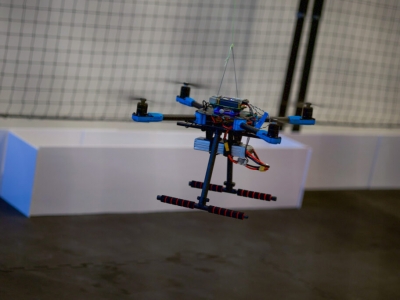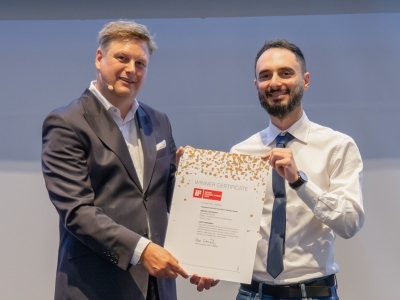JAMES BAGNALL, OTTAWA CITIZEN
The usual progression for a startup is to raise a little seed money from family and friends, move on to angel investors, then tap venture capital. But that’s not the route picked by Graphite Software, a Kanata startup less than a year old. It was to announce on June 19, 2013, that it has landed $4.4 million in venture financing. The deal values the startup at somewhere between $9 million and $12 million.
“We went directly to the series A round,” says Alec Main, a co-founder, in reference to the first tranche of venture capital. Kanata-based Celtic House Venture Partners is supplying the money, which will be used to further develop Graphite Software’s core product. The company’s software establishes multiple secure spaces on smartphones and tablets, with each domain offering varying levels of security depending on the importance of the data or application. A key target is the Android market.
It helps that Main and at least two co-founders —- Paul Litva and Ron Vandergeest — were part of the team that built Cloakware. This was the Kanata software security firm acquired in 2007 by Netherlands-based Irdeto for $72.5 million U.S. Cloakware’s technology transforms source code to prevent tampering or copying of digital content such as movies or music. At the time of its purchase, Cloakware’s software was embedded in one billion electronic devices, from mobile phones to media players. Most famously, movie-streaming firm Netflix purchased the software in 2010 to protect its system from hackers.
Cloakware’s venture investors walked away with the majority of the proceeds from the Irdeto sale, earning anywhere between three and six times what they put in. Cloakware’s founders and early employees also did reasonably well.
Retirement, though, seemed out of the question. Main worked for Irdeto for eight months, then accepted a job offer from Nagravision, a Swiss outfit that builds secure systems for delivering content. By mid-2012, however, Main was restless to return to Canada. He also missed the excitement of working in a technology hub.
He discovered former colleagues were also eager to launch another startup. Paul Litva and Ron Vandergeest both resigned from Irdeto late last fall to lay the groundwork for Graphite Software. There’s a fourth founder who has agreed to play the role of CEO but can’t yet be identified because he or she is currently at another firm.
In the past few months, Graphite Software has added several top developers with a particular talent in Android technology — the software that drives the bestselling smartphones built by Samsung. Dmitri Federov, for instance, helped Irdeto develop components to allow corporations to manage Android mobile devices remotely. Since March, he has been Graphite’s software architect. James Puderer is the startup’s principal Android developer.
Graphite Software — the name is meant to signify the modern, lightweight and strong quality of the composite — aims to solve a couple of important problems in a very elegant way. The first is to make Android devices safe for downloading apps. The second is to give corporations a way of including the ubiquitous Android phones in their networks without compromising security.
Unlike Apple’s closed and reasonably secure ecosystem, Android devices — built on a more open system — are vulnerable to hackers. Graphite Software’s approach relies on segmenting the core Android software to create multiple spaces on a handset. For instance, one partition would contain a list of contacts and other information; another one would isolate the more dangerous downloads or computer games.
Graphite Software’s technology also permits individuals to assign part of the handset to their employer’s information technology department, thus allowing use of the phone for both corporate and personal purposes. Main says the design “makes sure your company can’t read your personal messages and pictures.”
Graphite Software does not claim to make Android phones invulnerable to hackers and malware. “You still need to practice safe Internet surfing,” adds Main. However, it purports to keep the data safe —- malware downloaded into the personal partition should not be able to steal data from the corporate space, for example.
Graphite Software intends to charge corporations for its products while making it free for personal use. It is showing prototypes to wireless carriers and hopes later to sell its technology to handset makers who would embed it in their hardware.
Graphite Software also hopes to partner with BlackBerry. Although BlackBerry’s newest devices — the Q10 and Z10 — already offer business and play partitions, the Waterloo firm recently announced its core BlackBerry Enterprise Servers will be adapted to support non-BlackBerry devices such as Android and the iPhone. Graphite Software’s goal is to provide the security for Android smartphones that become integrated with the BlackBerry servers.
It is obviously early to say whether Graphite Software will succeed in becoming a significant player in the market for Android devices, expected to reach nearly 900 million in 2017. A key rival technology involves virtualization, which partitions heavy-duty corporate servers in various ways. Main contends that smartphones, while far more powerful than they were, do not yet lend themselves to that type of approach.
One of the things Celtic House Venture Partners likes about Graphite Software is the fact its founders have been there and done that -— they know how to build companies and understand the hyper-competitive security software business. That doesn’t guarantee success, but it does reduce the very high risk.



